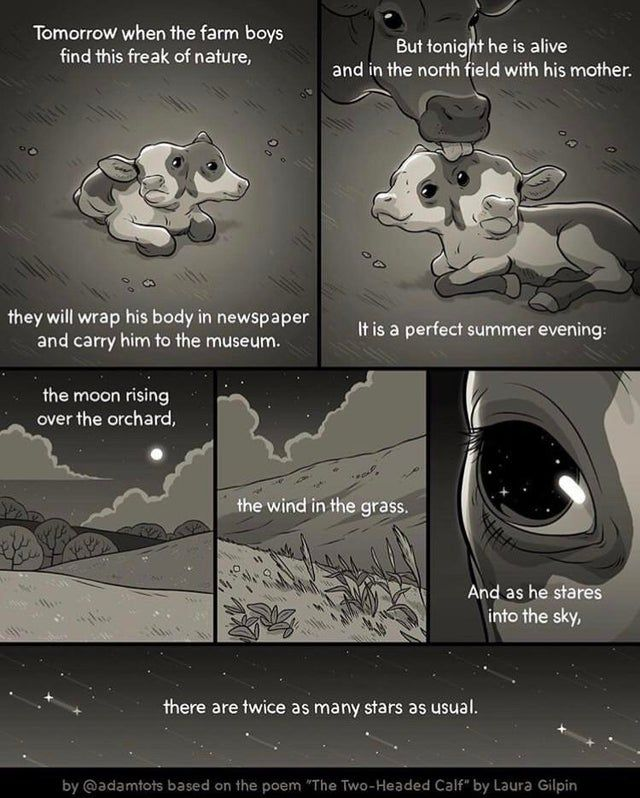93 “Freak” of Nature
Brianna Bailey and Patrick Lillicotch
Human beings tend to view nature as this pristine, perfect, fantasized thing. Timothy Morton refers to this as “Nature,” placing emphasis on the N being capitalized to “make it look less natural.” (273). Nature is something that can be viewed as “pure” and “untouched”, naturally perfect and pretty for human consumption. But what happens when a product of Nature isn’t so perfect?

Laura Gilpin’s poem, “The Two-Headed Calf,” provides an avenue in which an imperfection in Nature can be explored. The titular calf is referred to as a “freak of nature”, something that perhaps should have never been born. Queer ecology attempts to deconstruct the heterosexual binaries we place upon Nature, and the way we assign categories to aspects of it.
We consider things “unnatural” or “natural” and place importance on what we find to be perfect/natural. Because the cow is considered “unnatural” for being born with two-heads, he will be taken to a museum to be displayed. He will be taken out of Nature and othered via this display. We are all interconnected and tangled within this mesh where no one thing has more importance than another, but it is almost as if the farm boys will “remove” the calf from the mesh and from Nature as to not ruin the aestheticized view that they hold of it.
Perhaps ironically, the two-headed calf enjoys his perfect, pristine surrounding and can see “twice” as many stars due to his so-called birth defect. The calf unknowingly follows the idealized and aestheticized view we hold on Nature through his encounter with the “perfect summer evening”, while simultaneously ruining this “perfect summer evening” by being born “unnatural” and “imperfect.”
